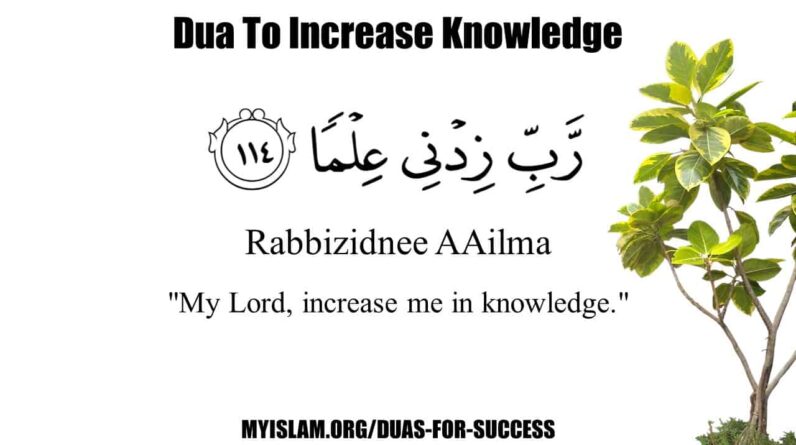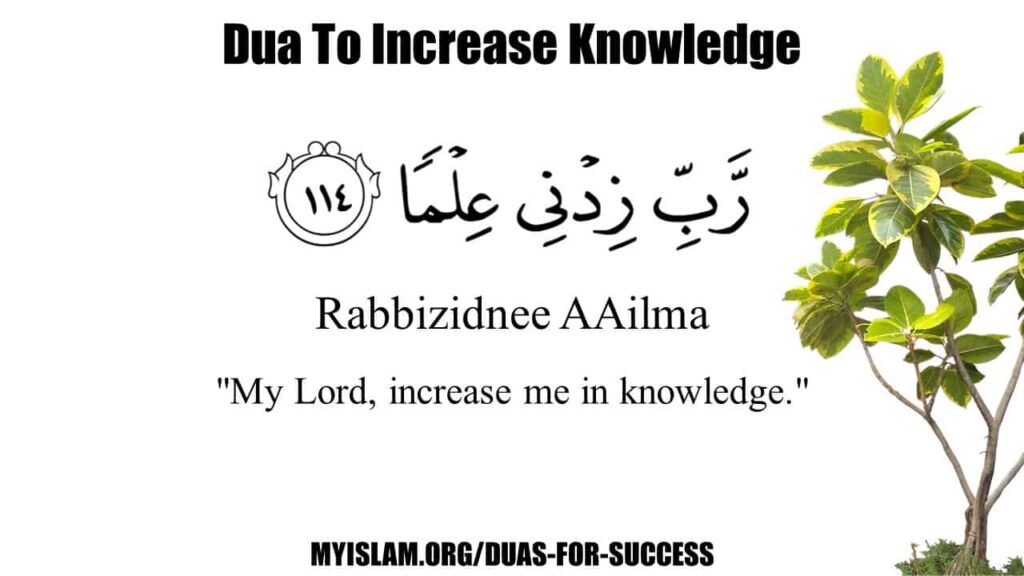
Do you ever find yourself wanting to make dua (supplication) but not knowing when or how to do it effectively? Don’t worry, you’re not alone. Many people struggle with understanding the best times and methods for making dua. In this article, we’ll dive into the subject and explore when and how to make dua for maximum impact.
Making dua is one of the most powerful ways to connect with Allah and seek His guidance and blessings. Whether you’re facing a challenging situation, seeking forgiveness, or expressing gratitude, dua is a direct line of communication between you and Allah. But timing and manner can greatly affect the impact of your dua. In this article, we’ll explore the best times to make dua, such as during the last third of the night, on Fridays, and during the holy month of Ramadan. We’ll also discuss the importance of sincerity, humility, and focusing on the content of your dua. So, if you’re looking to strengthen your relationship with Allah and enhance the impact of your prayers, keep reading to learn more.

Table of Contents
When and How to Make Dua for Maximum Impact
Understanding Dua
Dua is an integral part of the Islamic faith, and it holds immense significance in the lives of Muslims. It is a form of supplication, where individuals turn to Allah to seek His guidance, support, and blessings. Dua can be made in any language and at any time, as it is a direct line of communication between a person and the Almighty.
Importance of Dua in Islam
Dua is a powerful tool that allows believers to connect with Allah and seek His assistance in their daily lives. It is a means of expressing gratitude, seeking forgiveness, and asking for blessings. The Prophet Muhammad (peace be upon him) emphasized the significance of dua and encouraged Muslims to turn to Allah in all matters.
Making dua is an act of worship that reflects one’s reliance on Allah, acknowledging that He is the ultimate source of all help and guidance. It is a way to demonstrate our complete submission to Allah’s will and trust in His wisdom. By making dua, we acknowledge our dependence on Allah and recognize His supreme authority in our lives.
Power of Dua in Seeking Maximum Impact
Dua holds immense power and can have a transformative effect on our lives. It is a means through which we can seek Allah’s mercy, blessings, and protection. When made sincerely and with pure intentions, dua has the potential to bring about positive change and have a lasting impact on our lives.
By making dua, we invite Allah’s intervention and seek His assistance in overcoming challenges, finding guidance, and achieving success. It is a way to express our deepest desires and needs to the One who has the power to fulfill them. Dua enables us to connect with Allah on a personal level and strengthen our bond with Him.
When to Make Dua
Times of Maximum Acceptance
While dua can be made at any time, there are specific periods when our supplications are more likely to be accepted. These include the last third of the night, the time between the adhan (call to prayer) and iqamah, during prostration in prayer, and on Fridays. These times are considered blessed and are opportune moments to make dua.
Specific Times for Making Dua
Apart from the general times of maximum acceptance, there are specific occasions when making dua holds special significance. These include the last ten nights of Ramadan, the Day of Arafah, the night of Laylatul Qadr, and the moments before breaking one’s fast. These occasions offer unique opportunities for our supplications to be answered.
Seeking Opportunities for Making Dua
While there are specific times when dua is more likely to be accepted, it is important to remember that we can make dua at any time and in any place. We should seek opportunities throughout our day to turn to Allah, whether it is during moments of solitude, after our prayers, or when faced with difficulties. Consistency in making dua enhances its impact and strengthens our connection with Allah.
How to Make Dua
The Importance of Sincerity
Sincerity is a crucial element when making dua. It involves having a pure and sincere intention when supplicating to Allah. Our dua should not be driven by worldly desires or selfish motives but should be solely aimed at seeking Allah’s pleasure and guidance. Sincere dua demonstrates our true trust and reliance on Allah’s mercy and wisdom.
The Role of Repentance
Before making dua, it is essential to repent sincerely from any sins or wrongdoings. Repentance cleanses the heart and removes any barriers between us and Allah. It is a way of purifying ourselves and seeking forgiveness, which in turn allows our dua to be more effective.
Turning to Allah with Humility
When making dua, we should adopt a humble and submissive attitude, recognizing our own weaknesses and limitations. This attitude of humility reflects our acknowledgment of Allah’s greatness and our own dependence on Him. Turning to Allah with a humble heart increases the chances of our dua being accepted.
Choosing the Right Words for Dua
While there is no specific formula for making dua, it is recommended to use sincere and heartfelt words when supplicating to Allah. One should express their desires, needs, and struggles in their own words, beseeching Allah for His mercy and guidance. It is also important to remember that Allah understands all languages, so one can make dua in their mother tongue.
Making Dua in the Prophetic Way
The Prophet Muhammad (peace be upon him) provided us with guidance on how to make dua effectively. He taught us to begin by praising and glorifying Allah, followed by sending blessings upon the Prophet. It is then recommended to humbly present our needs and desires to Allah, acknowledging His power and mercy. Finally, one should end the dua with prayers for forgiveness and blessings for all Muslims.
Etiquettes of Making Dua
Facing the Qibla
When making dua, it is recommended to face the Qibla (the direction of the Kaaba in Makkah) as a sign of unity and submission to Allah’s command. This act demonstrates our respect and reverence towards the sacred direction of prayer.
Raising Hands in Supplication
Raising one’s hands during dua is a gesture of humility and submission to Allah. It is a physical manifestation of our plea for assistance and a recognition of our complete reliance on Him. Raising hands is also a means of displaying our trust in Allah’s power and mercy.
Making Dua with Concentration
To ensure that our dua has maximum impact, it is important to make supplications with full concentration and focus. Avoid distractions and immerse yourself in the moment, expressing your desires to Allah sincerely and wholeheartedly. Concentrating on the meaning and significance of the words being uttered enhances the spiritual connection and impact of the dua.
Expressing Gratitude
Expressing gratitude to Allah before and after making dua is an important etiquette. It demonstrates our appreciation for Allah’s blessings and his constant care for us. Expressing gratitude before making a request shows humility and contentment, while expressing gratitude after the dua is answered reinforces our bond with Allah.
Persisting in Making Dua
Persistence is crucial in making dua. Allah encourages us to repeatedly supplicate to Him and to persevere in our requests. He wants us to demonstrate our commitment, trust, and reliance on Him. Even if our dua is not immediately answered, we should continue to make supplication, knowing that Allah’s timing is perfect and His wisdom is beyond our comprehension.

Benefits of Making Dua
Strengthening the Bond with Allah
Making dua helps build a strong and intimate connection with Allah. It is a way to express our love, gratitude, and reliance on Him. When we consistently turn to Allah in supplication, our bond with Him deepens, and we feel a sense of peace and contentment in His presence.
Achieving Inner Peace and Tranquility
The act of dua provides solace to the heart and mind. It allows individuals to unload their burdens and worries onto Allah, knowing that He is the ultimate source of peace and tranquility. The process of making dua brings comfort and reassurance, helping one find inner peace amidst life’s trials and tribulations.
Developing Trust and Reliance on Allah
By making dua, we develop a sense of trust and reliance on Allah. We recognize that He is in control of all affairs and has the power to grant our requests. This trust strengthens our faith and helps us face challenges with courage and conviction, knowing that Allah’s help is always near.
Transforming Difficulties into Opportunities
Dua has the remarkable power to transform difficult situations into opportunities for growth and blessings. When faced with trials and hardships, making dua enables us to seek solace in Allah’s presence. It redirects our focus from the problem at hand to the ultimate solution, which lies with Allah. Through dua, we open ourselves up to receiving divine guidance and assistance in navigating through life’s challenges.
Seeking Maximum Impact
Having Pure Intentions
To seek maximum impact through dua, it is essential to have pure and sincere intentions. Our dua should be solely for the sake of pleasing Allah and seeking His guidance. It should not be driven by worldly desires or personal gain. Genuine intentions reflect our wholehearted trust in Allah’s wisdom and demonstrate our complete reliance on Him.
Building a Strong Connection with Allah
To maximize the impact of dua, we must continuously work on building a strong and steadfast connection with Allah. This connection is cultivated through acts of worship, such as regular prayer, recitation of the Quran, and remembrance of Allah. By consistently turning to Allah in all aspects of our lives, we strengthen our bond with Him, making our supplications more impactful.
Seeking Allah’s Pleasure
The ultimate goal of making dua is to seek Allah’s pleasure. When we sincerely strive to please Allah and align our actions with His commands, our supplications become more meaningful and effective. Seeking Allah’s pleasure should be the driving force behind our dua, and it should reflect in our intentions and actions.
Aligning One’s Actions with Dua
Supplication is not merely about asking for blessings; it is also about taking action. To seek maximum impact through dua, one must align their actions with their supplications. Making dua for success, for example, should be accompanied by sincere effort and hard work. Dua serves as a catalyst for action, as we trust that Allah’s help and guidance will facilitate our endeavors.
Examples of Dua
Dua for Forgiveness
“O Allah, forgive me for my sins, both the ones committed knowingly and unknowingly. Guide me on the right path and cleanse my heart.”
Dua for Guidance
“O Allah, grant me wisdom and clarity in decision-making. Guide me to what is righteous and beneficial for my life in this world and the hereafter.”
Dua for Good Health
“O Allah, heal me and grant me good health. Protect me from all illnesses and ailments. Grant me the strength to take care of my body and use it to worship You.”
Dua for Success
“O Allah, grant me success in this life and the hereafter. Help me achieve my goals and aspirations. Facilitate my efforts and bless my endeavors.”
Dua for Protection
“O Allah, protect me from all evil, both seen and unseen. Shield me from harm and keep me under Your divine protection. Grant me courage and strength to face challenges.”
Overcoming Challenges in Making Dua
Feeling Disheartened by Delayed Response
It is common to feel disheartened when our dua is not immediately answered. However, we should remember that Allah’s timing is perfect, and He knows what is best for us. Delayed responses should not discourage us from making dua, but rather increase our trust in Allah’s wisdom.
Maintaining Faith During Hardship
In times of hardship and difficulty, it can be challenging to maintain faith and hope. However, it is precisely during these times that making dua is most essential. By turning to Allah and seeking His help, we find solace and strength to navigate through the storms of life. Genuine faith is tested and strengthened through trials.
Dealing with Doubts and Desperation
During moments of despair and desperation, doubts may arise regarding the effectiveness of dua. However, it is crucial to remember that Allah is always listening to our supplications. Holding onto faith and consistently making dua in such moments helps combat doubts and fosters trust in Allah’s plan.
Remaining Patient and Trusting Allah’s Plan
Patience is a virtue when it comes to dua. Sometimes, we may not receive an immediate answer, but that does not mean our dua is unheard. Allah’s response may come in different ways and at different times. Trusting in Allah’s plan and remaining patient is essential to overcome challenges in making dua.

Common Mistakes in Making Dua
Lack of Sincerity
One of the most common mistakes in making dua is a lack of sincerity. When our dua is driven by worldly desires or personal gain, it loses its authenticity and impact. It is crucial to check our intentions and make dua solely for the sake of seeking Allah’s pleasure.
Making Dua with Doubt
Doubt can undermine the effectiveness of dua. When making supplications, we should have full trust and confidence in Allah’s power and mercy. Doubts create a barrier between us and Allah, hindering our connection and the impact of our dua.
Impatience in Expecting Immediate Results
Impatience is another mistake that can diminish the impact of dua. We should remember that Allah’s timing is perfect, and His wisdom surpasses our understanding. Immediate results should not be the sole measure of the effectiveness of dua. Patience and trust in Allah’s plan will yield greater rewards.
Neglecting the Intention
Intention plays a crucial role in the effectiveness of dua. Neglecting to set the right intention or not aligning our intentions with pleasing Allah can weaken the impact of our supplication. It is important to reflect on our intentions before making dua and ensure they are in line with seeking His pleasure.
Conclusion
Reflecting on the power of dua and understanding its significance in Islam leads us to embrace the practice of making dua. Through dua, we can seek maximum impact in our supplications and strengthen our relationship with Allah. By following the etiquettes of making dua, we can harness the transformative power of this act of worship, seeking Allah’s blessings, guidance, and mercy. In doing so, we can experience the countless benefits of making sincere dua and witness the profound impact it has on our lives. May Allah grant us the ability to make dua with sincerity and trust and bless our supplications with His mercy and acceptance.


